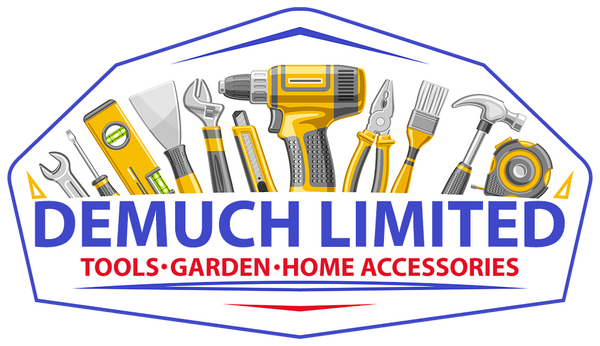The Ultimate Guide to DIY Tools: Essentials for Every Home and Project
Share
Whether you’re a seasoned DIY enthusiast or just starting, having the right tools can make all the difference in your projects. From simple repairs to ambitious home improvements, a well-equipped toolkit ensures you can tackle tasks efficiently and safely. In this guide, we’ll explore the must-have DIY tools for every home and project.
Essential DIY Tools for Every Home
1. Hand Tools: The Basics
These are the foundation of any DIY toolkit and are useful for general repairs and home improvement tasks.
- Hammer: Ideal for driving nails, pulling out old ones, and even light demolition work.
- Screwdrivers (Flathead & Phillips): Essential for assembling furniture, fixing loose screws, and working on electrical outlets.
- Adjustable Wrench: A must-have for tightening and loosening nuts and bolts.
- Tape Measure: Ensures precision in measuring materials for cutting or fitting.
- Pliers: Useful for gripping, twisting, and cutting wires or small objects.
2. Cutting Tools for Precision
- Utility Knife: Great for cutting drywall, cardboard, and various materials with ease.
- Hand Saw: Essential for cutting wood and small projects without the need for power tools.
- Hacksaw: Designed for cutting through metal, plastic, and even some ceramics.
3. Power Tools for Advanced DIY Projects
Power tools save time and effort, making them valuable for serious DIYers.
- Cordless Drill: A versatile tool for drilling holes and driving screws effortlessly.
- Jigsaw: Perfect for cutting curves and intricate shapes in wood, plastic, or metal.
- Circular Saw: Ideal for straight, precise cuts in wood, plywood, and even flooring.
- Electric Sander: Speeds up the process of smoothing wood surfaces and removing paint.
4. Measuring & Marking Tools
Accuracy is key in DIY projects, and these tools help achieve precision.
- Spirit Level: Ensures shelves, frames, and surfaces are perfectly aligned.
- Carpenter’s Square: Essential for checking angles and making accurate cuts.
- Pencil & Chalk Line: Useful for marking measurements before cutting or drilling.
5. Safety Gear for DIY Projects
Safety should always be a priority when working with tools.
- Safety Glasses: Protects your eyes from dust, debris, and flying particles.
- Gloves: Helps prevent cuts, burns, and splinters while handling materials.
- Dust Mask: Essential when sanding, painting, or working with chemicals.
- Ear Protection: Important when using loud power tools to prevent hearing damage.
Choosing the Right DIY Tools
When selecting tools, consider quality, durability, and usability. Investing in high-quality tools from reputable brands will save you money in the long run, as they last longer and perform better.
Organizing and Maintaining Your Tools
Proper storage and maintenance extend the life of your tools and keep your workspace tidy.
- Store tools in a toolbox or on a pegboard for easy access.
- Clean and lubricate tools regularly to prevent rust and wear.
- Charge battery-powered tools and store them in a dry place.
Conclusion
Having the right DIY tools at home allows you to tackle repairs, improvements, and creative projects with confidence. Whether you're fixing a leaky tap, building furniture, or renovating a space, investing in essential hand and power tools is a step toward becoming a skilled DIYer.
Looking for high-quality DIY tools? Visit www.demuch.co.uk for top-rated tools and accessories to make your projects easier and more efficient!
